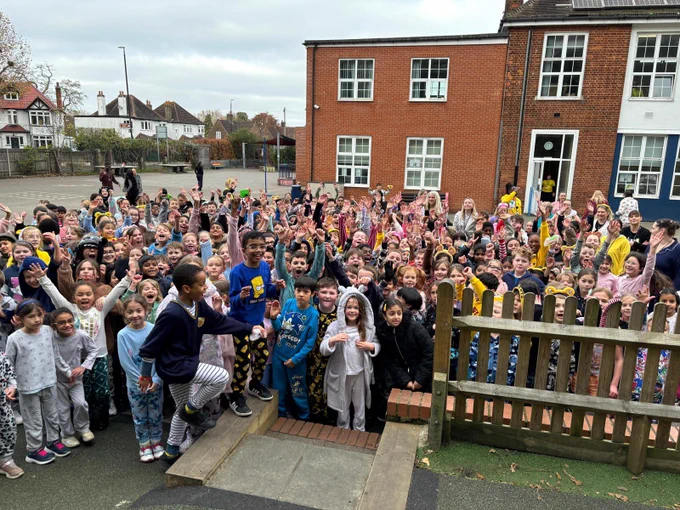PE
Our PE curriculum aims to provide children with knowledge and skills in the following areas:
-
Games
-
Dance
-
Gymnastics
-
Athletics
-
Swimming
-
Outdoor and adventurous activities

What is the intention of the KS2 PE Curriculum?
A high-quality physical education curriculum inspires all pupils to succeed and excel in competitive sport and other physically demanding activities. It should provide opportunities for pupils to become physically confident in a way which supports their health and fitness. Opportunities to compete in sport and other activities build character and help to embed values such as fairness and respect.
Through the teaching of PE we intend to:
-
enable pupil’s to develop and explore physical skills with increasing control and co-ordination.
-
encourage pupils to work and play with others in a range of group situations.
-
develop the way pupil perform skills and apply rules and conventions for different activities.
-
show pupil’s how to improve the quality and control of their performance.
-
teach pupil to recognise and describe how their bodies feel during exercise.
-
develop the pupil’s enjoyment of physical activity through creativity and imagination.
-
develop an understanding in pupils of how to succeed in a range of physical activities and how to evaluate their own success.
-
assess pupil’s learning, analyse and interpret the results to inform future planning and lessons.
How will this be implemented?
PE develops a child’s knowledge, skill and understanding, so that they can perform with increasing competence and confidence in a range of physical activities. A varied curriculum is in place to support this, with activities including: dance, athletics, gymnastics, games, swimming and water safety and outdoor adventure activities.
The National Curriculum states that:
Key Stage 2
Pupils should continue to apply and develop a broader range of skills, learning how to use them in different ways and to link them to make actions and sequences of movement. They should enjoy communicating, collaborating and competing with each other.
They should develop an understanding of how to improve in different physical activities and sports and learn how to evaluate and recognise their own success.
Pupils should be taught to:
-
use running, jumping, throwing and catching in isolation and in combination
-
play competitive games, modified where appropriate and apply basic principles suitable for attacking and defending
-
develop flexibility, strength, technique, control and balance
-
perform dances using a range of movement patterns
-
take part in outdoor and adventurous activity challenges both individually and within a team
-
compare their performances with previous ones and demonstrate improvement to achieve their personal best.
-
swim competitively and proficiently for at least 25m
-
use a range of strokes effectively
-
perform self-rescue in different water based situations
In the Harris Federation, PE is an important subject in which pupil learn the importance of an active lifestyle and have the opportunities to play in competitive sport.
All pupils (Year 1-6) receive 2 hours of PE teaching a week.
We use a variety of teaching and learning styles in PE lessons. Our principle aim is to develop the pupil knowledge, skills and understanding and we do this through a mixture of whole-class teaching and individual/group activities. Teachers/ Coaches model sporting skills then provide pupils with opportunities for them to practise their newly learnt skills. Teachers/ coaches draw attention to good examples of individual performance as models for the other pupils and we encourage the pupil to evaluate their own work as well the work of other pupils.
Additional PE Opportunities
We aim to provide a variety of sporting opportunities. These encourage pupils to further develop their skills in a range of the activity areas. The focus sport in each lesson changes each term in the school year. As well as sporting opportunities within the school community, we also enter partnership and county sporting events. The pupils have opportunities to competitively play in tennis, athletics, rugby, cricket, hockey, netball and dance. These experiences allow for pupils to apply their sporting skills, develop team skills and learn how to play competitively.
In KS2, pupils take part in a Federation wide sporting event, either as a participant or as a spectator.
How will we judge the impact of the PE Curriculum?
Pupils have a wide range of physical ability. Whilst recognising this fact, we provide suitable learning opportunities for all pupils by matching the challenge of the task to the ability of the child and in doing so raise pupil’s health (considering childhood obesity) and fitness levels, improve skills and develop pupil’s resilience, teamwork and perseverance (school values).
The use of assessment, questionnaires and surveys (pupils and staff) and by talking to pupils the quality of lessons and confidence in the teaching of PE improves and as a result the enjoyment and positive outcomes increases.
























